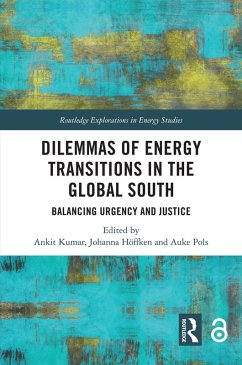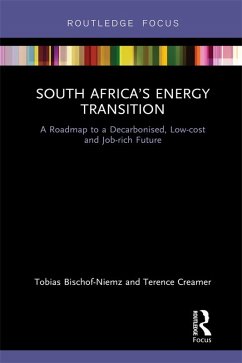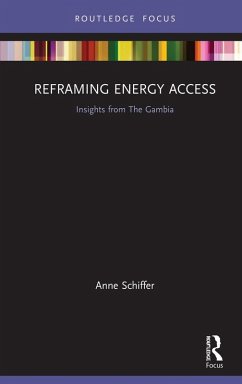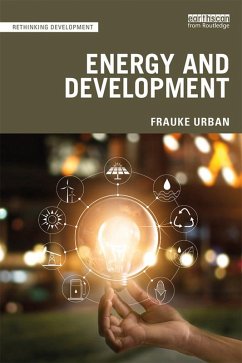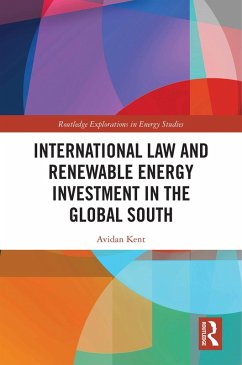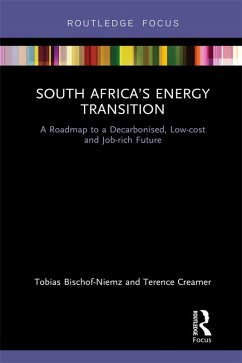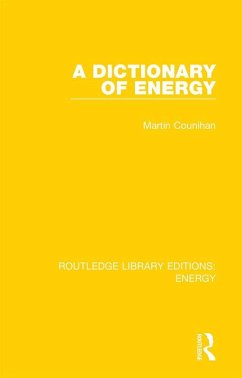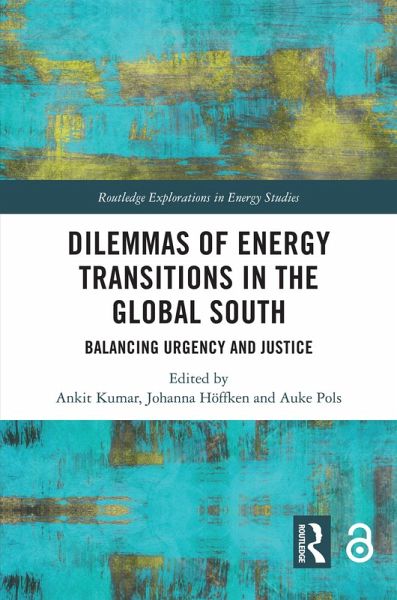
Dilemmas of Energy Transitions in the Global South (eBook, ePUB)
Balancing Urgency and Justice
Redaktion: Kumar, Ankit; Pols, Auke; Höffken, Johanna
Versandkostenfrei!
Sofort per Download lieferbar
0,00 €
inkl. MwSt.
Weitere Ausgaben:

PAYBACK Punkte
0 °P sammeln!
This book explores how, in the wake of the Anthropocene, the growing call for urgent decarbonisation and accelerated energy transitions might have unintended consequences for energy poverty, justice and democracy, especially in the global South.Dilemmas of Energy Transitions in the Global South brings together theoretical and empirical contributions focused on rethinking energy transitions conceptually from and for the global South, and highlights issues of justice and inclusivity. It argues that while urgency is critical for energy transitions in a climate-changed world, we must be wary of co...
This book explores how, in the wake of the Anthropocene, the growing call for urgent decarbonisation and accelerated energy transitions might have unintended consequences for energy poverty, justice and democracy, especially in the global South.
Dilemmas of Energy Transitions in the Global South brings together theoretical and empirical contributions focused on rethinking energy transitions conceptually from and for the global South, and highlights issues of justice and inclusivity. It argues that while urgency is critical for energy transitions in a climate-changed world, we must be wary of conflating goals and processes, and enquire what urgency means for due process. Drawing from a range of authors with expertise spanning environmental justice, design theory, ethics of technology, conflict and gender, it examines case studies from countries including Bolivia, Sri Lanka, India, The Gambia and Lebanon in order to expand our understanding of what energy transitions are, and how just energy transitions can be done in different parts of the world. Overall, driven by a postcolonial and decolonial sensibility, this book brings to the fore new concepts and ideas to help balance the demands of justice and urgency, to flag relevant but often overlooked issues, and to provide new pathways forward.
This volume will be of great interest to students and scholars of energy transitions, environmental justice, climate change and developing countries.
The Open Access version of this book, available at https://www.taylorfrancis.com/books/oa-edit/10.4324/9781003052821 has been made available under a Creative Commons Attribution-Non Commercial-No Derivatives 4.0 license.
Dilemmas of Energy Transitions in the Global South brings together theoretical and empirical contributions focused on rethinking energy transitions conceptually from and for the global South, and highlights issues of justice and inclusivity. It argues that while urgency is critical for energy transitions in a climate-changed world, we must be wary of conflating goals and processes, and enquire what urgency means for due process. Drawing from a range of authors with expertise spanning environmental justice, design theory, ethics of technology, conflict and gender, it examines case studies from countries including Bolivia, Sri Lanka, India, The Gambia and Lebanon in order to expand our understanding of what energy transitions are, and how just energy transitions can be done in different parts of the world. Overall, driven by a postcolonial and decolonial sensibility, this book brings to the fore new concepts and ideas to help balance the demands of justice and urgency, to flag relevant but often overlooked issues, and to provide new pathways forward.
This volume will be of great interest to students and scholars of energy transitions, environmental justice, climate change and developing countries.
The Open Access version of this book, available at https://www.taylorfrancis.com/books/oa-edit/10.4324/9781003052821 has been made available under a Creative Commons Attribution-Non Commercial-No Derivatives 4.0 license.
Dieser Download kann aus rechtlichen Gründen nur mit Rechnungsadresse in A, B, BG, CY, CZ, D, DK, EW, E, FIN, F, GR, HR, H, IRL, I, LT, L, LR, M, NL, PL, P, R, S, SLO, SK ausgeliefert werden.




